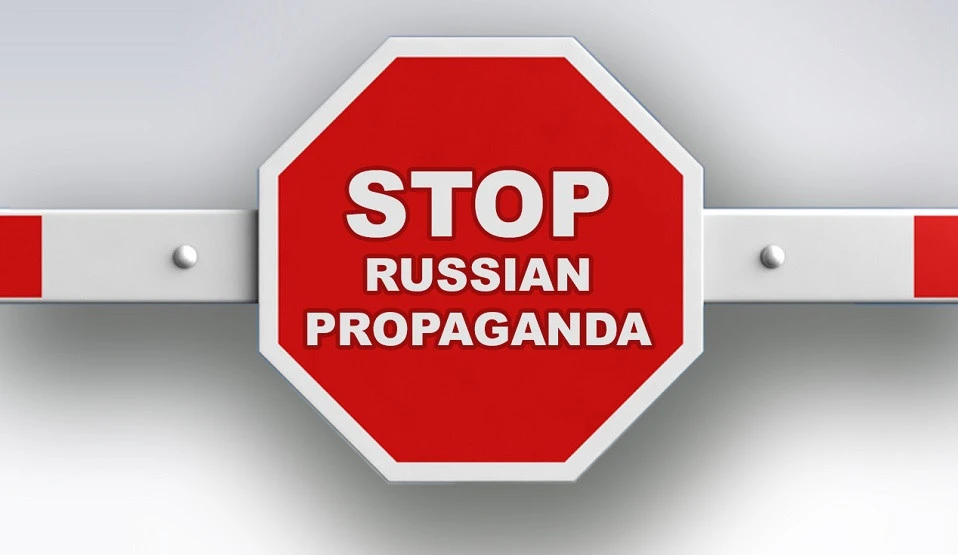
Moldova labels Russian Cultural Center terrorist organization amid espionage scandal
Moldova, following Azerbaijan, will be the second country to shut down the Russian Center for Science and Culture (Russian House) over espionage and security concerns
Advisor to Ukraine's Defense Minister Oleksii Kopytko discussed the issue on his Facebook page.
According to Kopytko, it all began with a story involving the "unofficial" channel BakuTV, which was closely aligned with Russian interests. However, on January 24, a journalist from the channel unexpectedly exposed a network of espionage and a hotbed of separatism right in front of the government house in Azerbaijan’s capital.
Ten days later, the Russian side was informed of the expulsion of Rossotrudnichestvo. Moscow attempted to stir controversy, but after another ten days, according to BakuTV’s reporting, the operation was shut down.
“The trigger for the situation was Russia’s reprehensible behavior—downing a civilian plane near Chechnya with a Pantsir-S1 air defense system, killing dozens of people. Instead of offering an apology or compensation, Russia deflected and launched a campaign of personal attacks against Azerbaijan’s President Ilham Aliyev, accompanied by extensive negative propaganda targeting Azerbaijan,” Kopytko writes.
Azerbaijan avoided escalating the conflict and provided Putin with opportunities to save face. However, instead of offering a diplomatic or humane response, Putin doubled down on his stance. This attitude was likely motivated by the fact that much of the responsibility for the incident fell on Ramzan Kadyrov, who was protecting the Pantsir system. Following the plane crash, Kadyrov tried to position himself as an equal to Aliyev.
Azerbaijan quickly grasped the full extent of the situation. Meanwhile, Kadyrov rewarded his nephew—the head of Chechnya's National Security Service—who had prematurely celebrated the incident. He also attempted to humiliate Aliyev by offering aid through minor officials, which was perceived as a deliberate insult.
On December 28 and 29, Putin and Aliyev reportedly discussed the plane crash. Aliyev likely demanded accountability, but Putin evaded direct action and instead offered scapegoats. Azerbaijan gave Russia a month to reflect on the matter. By January, however, Russia began undermining the investigation. In response, Baku confronted Rossotrudnichestvo, citing its lack of proper registration as the formal reason for taking action.
The conflict stemmed from Russia’s disruption of the delicate balance in bilateral relations, particularly after it shut down a key Azerbaijani organization in Russia. The situation might have been resolved by restoring that balance, but Yevgeny Primakov, head of Rossotrudnichestvo, exacerbated the issue by turning it into an official diplomatic conflict. His actions led to the expulsion of Russian diplomats from Azerbaijan, and the Russian House network became widely associated with espionage.
Primakov’s actions inadvertently intensified the diplomatic scandal, triggering a chain reaction. His decisions not only damaged Rossotrudnichestvo but also affected Russia’s Ministry of Foreign Affairs. The situation escalated further when Moldova expelled Rossotrudnichestvo for separate reasons, linked to the broader effort to counter Russian influence. Instead of defusing the crisis, Primakov worsened it, ultimately leading to the closure of two Rossotrudnichestvo cells.
On February 13, Moldova’s Ministry of Foreign Affairs announced the unilateral termination of the 1998 intergovernmental agreement with Russia on the establishment of cultural centers. This decision came after Russian drones violated Moldova’s airspace. Once the agreement termination process is complete, the Russian Cultural Center’s activities in Moldova will cease.
Moldovan President Maia Sandu reported that two Russian drones targeting Ukraine’s Odesa region had entered Moldova’s airspace and exploded without causing casualties. The Moldovan Ministry of Foreign Affairs summoned Russian Ambassador Oleg Ozerov to deliver a strong protest, emphasizing the national security threat posed by such violations. The ambassador was presented with drone debris as evidence. Moscow has yet to respond to Moldova’s decision to terminate the 1998 cultural agreement.
The controversy surrounding Rossotrudnichestvo is expanding, with Armenia now joining the discussion. In Azerbaijan, there is growing concern about the Kremlin-backed propaganda outlet Sputnik, which operates in the country despite the absence of a similar Azerbaijani structure in Russia. The situation worsened when Primakov’s actions inadvertently drew attention to Sputnik, creating a diplomatic precedent and raising further questions about its influence in Azerbaijan.
- News













































